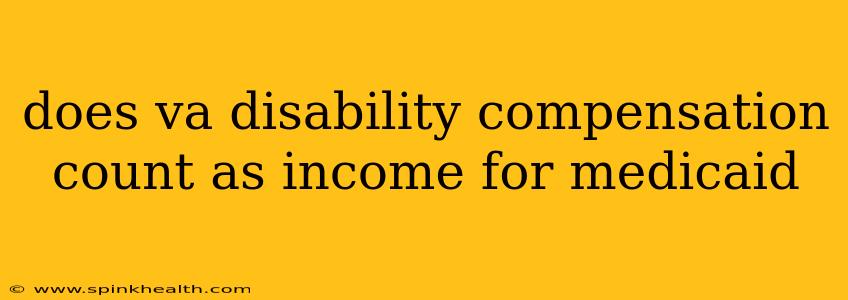Does VA Disability Compensation Count as Income for Medicaid?
The question of whether VA disability compensation counts as income for Medicaid eligibility is a common one, and the answer, unfortunately, isn't a simple yes or no. It's a nuanced situation that depends on several factors, making it crucial to understand the specifics. Let's unravel this complexity together, exploring the intricacies of how the VA and Medicaid systems interact.
Imagine Sarah, a veteran struggling with the lasting effects of her service. She relies on her VA disability compensation to make ends meet, and now needs help covering her medical expenses. She wonders, "Will my VA disability payments affect my eligibility for Medicaid?" This is where the intricacies begin.
The Complicated Relationship Between VA Disability and Medicaid
Medicaid, a joint federal and state program, provides healthcare coverage to low-income individuals and families. Eligibility criteria vary from state to state, making it challenging to provide a blanket answer. However, a common thread runs through most state programs: VA disability compensation is generally not considered income for Medicaid eligibility purposes in most states.
This is a significant relief for many veterans. The logic behind this is that VA disability compensation is intended to replace lost wages due to service-connected disabilities, not to provide general financial support. Therefore, it's often treated differently than other forms of income when determining Medicaid eligibility.
What Does Count as Income for Medicaid?
While VA disability compensation usually isn't counted, other income sources certainly are. These typically include:
- Social Security benefits: This is a significant factor in Medicaid eligibility determinations.
- Pensions: Private or public pensions are typically considered income.
- Wages and salaries: Employment income is a key factor in determining eligibility.
- Alimony and child support: These payments are often included in income calculations.
- Interest and dividends: Income generated from investments is often factored in.
How is Medicaid Eligibility Determined?
Medicaid eligibility isn't solely based on income. States also consider:
- Resources: This refers to assets like savings, checking accounts, and property. There are limits on the amount of resources an individual can possess and still qualify for Medicaid.
- Household size: The number of people in the household impacts eligibility thresholds.
- Age and disability status: Specific programs exist for seniors and people with disabilities, which may have different eligibility requirements.
What About the "Income and Resource Limits"?
Each state establishes its own income and resource limits. These limits dictate the maximum amount of income and assets a person can have and still be eligible for Medicaid. Exceeding these limits will generally disqualify an individual, even if their VA disability compensation isn't directly counted in the income calculation.
State-Specific Variations: The Need for Individual Assessment
The key takeaway is that there's no one-size-fits-all answer. The way VA disability compensation is treated in Medicaid eligibility varies significantly from state to state. Therefore, veterans seeking Medicaid assistance should contact their state's Medicaid agency directly for the most accurate information based on their specific circumstances.
Don't rely solely on online information. An official determination from your state's Medicaid office is essential to understanding your eligibility. They can guide you through the application process and provide personalized assistance based on your unique situation.

